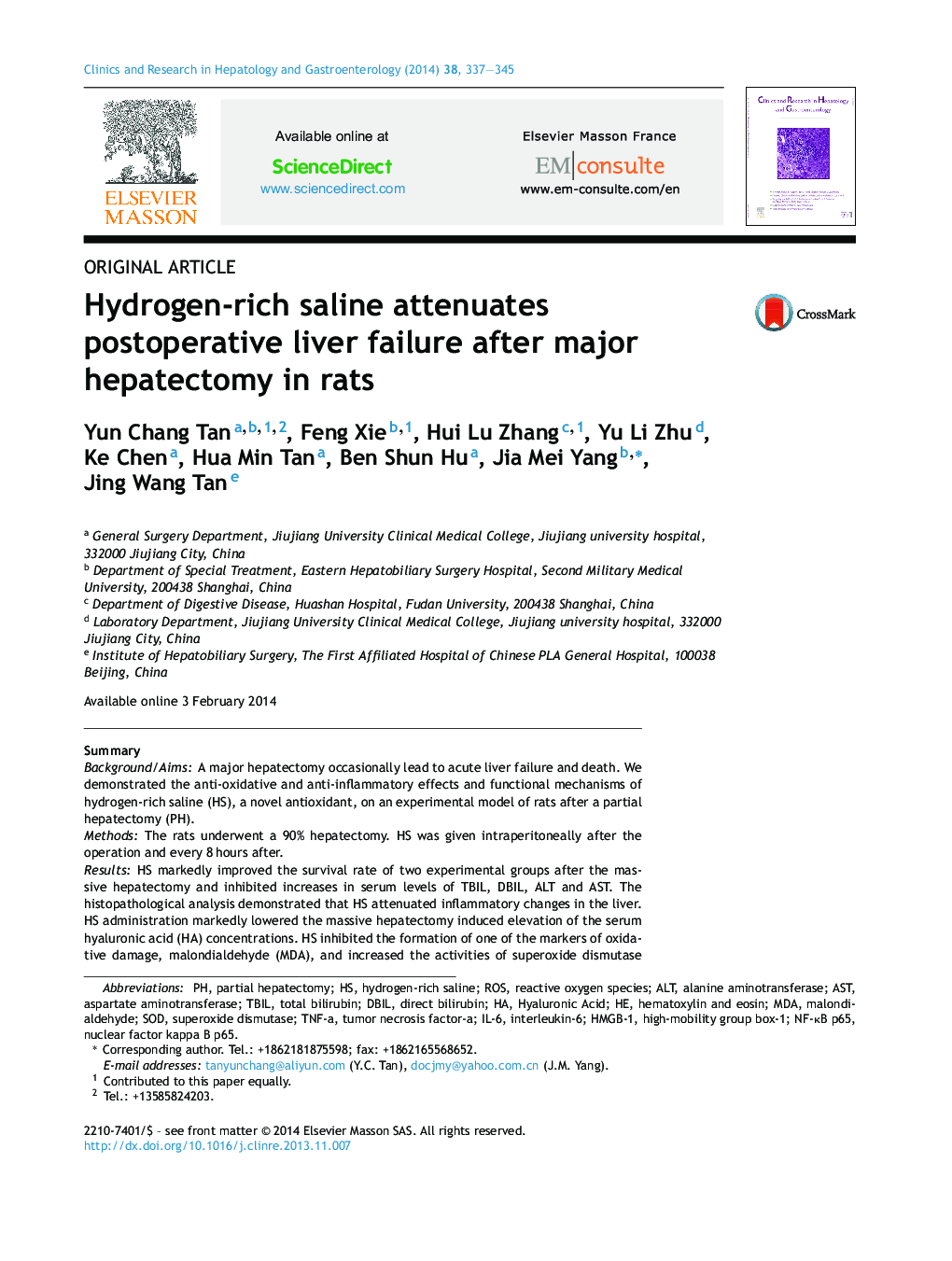| Article ID | Journal | Published Year | Pages | File Type |
|---|---|---|---|---|
| 3286578 | Clinics and Research in Hepatology and Gastroenterology | 2014 | 9 Pages |
SummaryBackground/AimsA major hepatectomy occasionally lead to acute liver failure and death. We demonstrated the anti-oxidative and anti-inflammatory effects and functional mechanisms of hydrogen-rich saline (HS), a novel antioxidant, on an experimental model of rats after a partial hepatectomy (PH).MethodsThe rats underwent a 90% hepatectomy. HS was given intraperitoneally after the operation and every 8 hours after.ResultsHS markedly improved the survival rate of two experimental groups after the massive hepatectomy and inhibited increases in serum levels of TBIL, DBIL, ALT and AST. The histopathological analysis demonstrated that HS attenuated inflammatory changes in the liver. HS administration markedly lowered the massive hepatectomy induced elevation of the serum hyaluronic acid (HA) concentrations. HS inhibited the formation of one of the markers of oxidative damage, malondialdehyde (MDA), and increased the activities of superoxide dismutase (SOD) in liver tissue. In the HS-treated group, increases in inflammatory cytokines, such as TNF-α, IL-6 and HMGB-1, were inhibited in the liver tissue. The NF-κB p65 staining revealed that HS inhibited the activation of the transcription factor nuclear factor kappa B (NF-kB).ConclusionsHS attenuates the massive hepatectomy induced liver injury not only by attenuating oxidative damage, but also by reducing the production of inflammatory cytokines, such as TNF-α, IL-6 and HMGB-1, in part through the inhibition of NF-kB activation.
